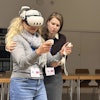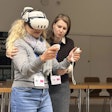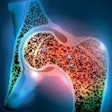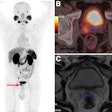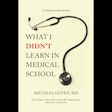
LONDON (Reuters), Feb 23 - British doctors and nurses could bin the clipboards at the end of patients' beds and head to their rounds clutching hi-tech tablet PCs after medical experts gave their backing to the new technology.
The hope is that the A4-sized, lightweight, mobile clinical assistants (MCA) will ease medics' workloads by giving them access to patient records on the move, make it easier to call up test results and cut down on their paperwork.
San Francisco-based makers Motion Computing and chip giant Intel also promise the 1,200 pound ($2,340) units will not smash if dropped, while the highly sensitive patient data will not be accessible if they fall into the wrong hands.
Accident and emergency specialist Simon Eccles said the new devices had been a hit with the nurses and doctors involved in trials as they were easy to use and saved time.
The Salford NHS foundation trust has ordered a number of the new devices, although the National Health Service is yet to commit to a bulk buy.
The MCA has 30-60 gigabytes of memory, WiFi capability to connect to hospital databases, and a digital camera to take photos of wounds. It also has a special pen with which to write notes and a barcode and RFID reader to check drugs and doses against patient wrist bands.
The MCA's were developed over the last three year after talking to doctors and nurses in Britain, the U.S., and Singapore.
Sony, Fujitsu, Philips, and Panasonic are also planning to build their own versions as technology firms look to tap into the huge global healthcare workforce.
Mike Bainbridge, a senior clinical architect for the NHS body overseeing the much delayed 6.2 billion pound upgrade of Britain's public health system said the MCA was a huge step for the problem-fraught project.
"Once we start getting the full clinical record on there and the picture archiving and that sort of stuff the advantages becomes absolutely undeniable."
He said NHS could get them at a cut price if it decides to buy in bulk.
Eccles said the new gadgets would earn back their costs by saving the time of highly paid specialists.
"When you consider that these can save a consultant an hour a day, these will pay for themselves in no time. The first year in fact," he said.
By Marc Jones
Last Updated: 2007-02-22 16:10:22 -0400 (Reuters Health)
Related Reading
Other reasons to buy an EMR system -- Be a winner, September 6, 2006
Copyright © 2007 Reuters Limited. All rights reserved. Republication or redistribution of Reuters content, including by framing or similar means, is expressly prohibited without the prior written consent of Reuters. Reuters shall not be liable for any errors or delays in the content, or for any actions taken in reliance thereon. Reuters and the Reuters sphere logo are registered trademarks and trademarks of the Reuters group of companies around the world.



